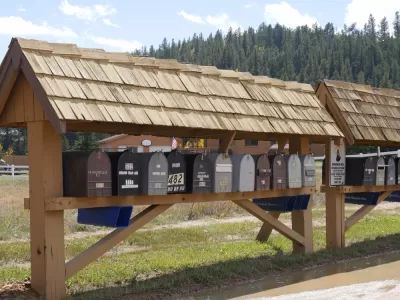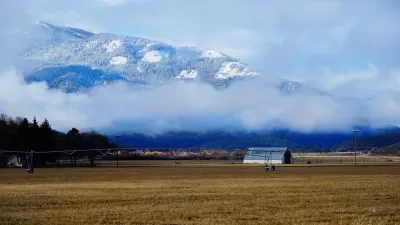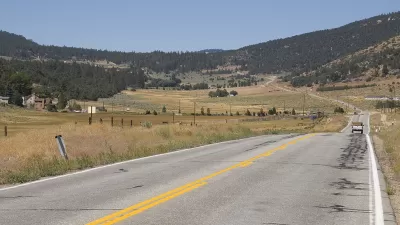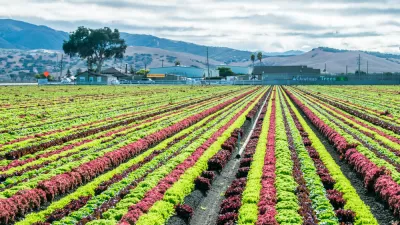"Lessons in New Ruralism" shares 20 case studies of prosperous rural communities from across the United States.

The New Ruralism Initiative is pleased to share stories of rural leadership, place-making, entrepreneurship, energy-generation, art-creation, and volunteerism that sustain the heart and soul of rural places. In its newly released report, Lessons in New Ruralism, The New Ruralism Initiative celebrates the rural renaissance in the making with twenty case studies of successful local initiatives in a wide variety of areas such as local foods, housing, energy, new approaches to cooperatives, community services and more.
New Ruralism articulates that rural communities, to prosper, need a synchronized sustainability focus in three areas: economic, environmental, and social. To thrive, rural planning, policy, and grassroots efforts must embrace new methods of economic sustainability, like cooperatives and the creative economy. They must uphold environmental sustainability, both protecting the land while stewarding working landscapes. And, they must invest in social sustainability, fostering community, strengthening their safety net, and nurturing active democracy. The weaving of these ideas together contributes to strong rural communities.
The Lessons in New Ruralism report represents communities from Washington to Maine. Takeaways that emerged from the case studies include:
- People-focused plans, policies, and projects have an outsized impact on small communities.
- With the right ingenuity, small towns can build high-quality livable-wage jobs that anchor residents and contribute to a growth in the local economy.
- To keep momentum going for long-term projects, organizations and groups must celebrate all the incremental wins along the way.
- Frequent, timely, clear, and direct communication is vital to the success of projects.
- Big changes in small communities often lead to a positive ripple effect.
Read the report for detailed case studies and additional insights.
FULL STORY: The New Ruralism Initiative - Sharing Stories Of New Ruralism

Study: Maui’s Plan to Convert Vacation Rentals to Long-Term Housing Could Cause Nearly $1 Billion Economic Loss
The plan would reduce visitor accommodation by 25,% resulting in 1,900 jobs lost.

North Texas Transit Leaders Tout Benefits of TOD for Growing Region
At a summit focused on transit-oriented development, policymakers discussed how North Texas’ expanded light rail system can serve as a tool for economic growth.

Using Old Oil and Gas Wells for Green Energy Storage
Penn State researchers have found that repurposing abandoned oil and gas wells for geothermal-assisted compressed-air energy storage can boost efficiency, reduce environmental risks, and support clean energy and job transitions.

Santa Barbara Could Build Housing on County Land
County supervisors moved forward a proposal to build workforce housing on two county-owned parcels.

San Mateo Formally Opposes Freeway Project
The city council will send a letter to Caltrans urging the agency to reconsider a plan to expand the 101 through the city of San Mateo.

A Bronx Community Fights to Have its Voice Heard
After organizing and giving input for decades, the community around the Kingsbridge Armory might actually see it redeveloped — and they want to continue to have a say in how it goes.
Urban Design for Planners 1: Software Tools
This six-course series explores essential urban design concepts using open source software and equips planners with the tools they need to participate fully in the urban design process.
Planning for Universal Design
Learn the tools for implementing Universal Design in planning regulations.
Ascent Environmental
Borough of Carlisle
Institute for Housing and Urban Development Studies (IHS)
City of Grandview
Harvard GSD Executive Education
Toledo-Lucas County Plan Commissions
Salt Lake City
NYU Wagner Graduate School of Public Service





























